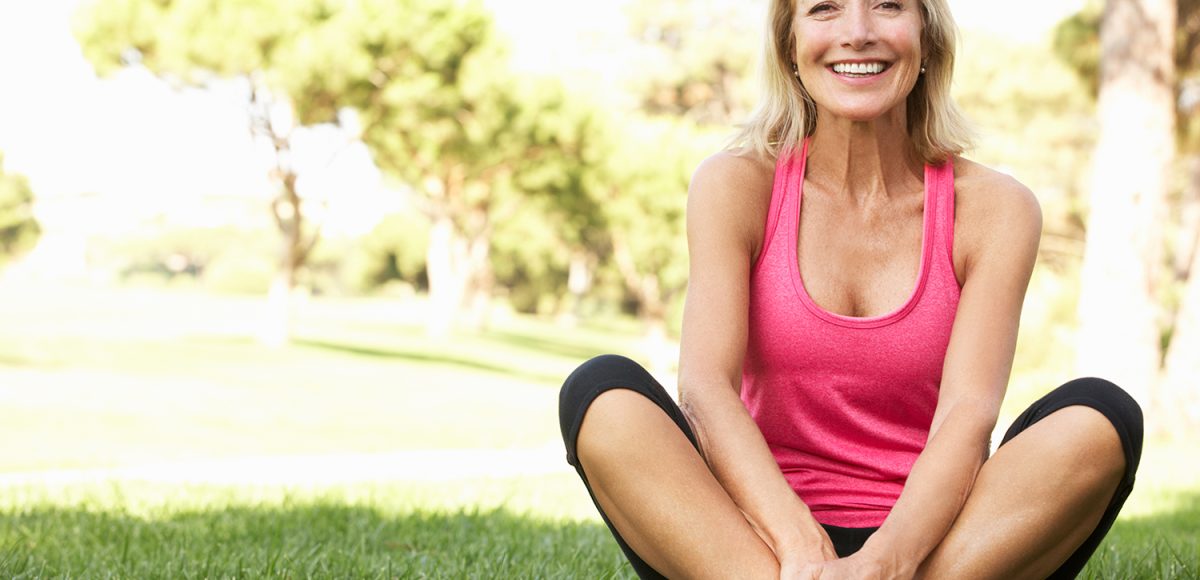Beverly Hills Courier columnist Dr. Eva Ritvo is a psychiatrist with 30 years experience practicing in Miami Beach. She is the author of “Bekindr-The Transformative Power of Kindness” and the Co-Founder of the Bold Beauty Project.
Dr. Ritvo received her undergraduate and medical degrees from UCLA and psychiatry residency training at Weill Cornell Medicine.
If you do one thing during the holidays, it should be this: get up and move!
It is so enticing this time of year to stay huddled around friends and family, indulging in festive meals and celebrations. That is definitely part of what makes the holidays special. But it is also important to put exercise on your list of priorities. In fact, research shows that exercise pays off in more ways than previously recognized.
We all know that exercise will make you look and feel better. But did you also know that it makes you smarter? Forget the old “dumb jock” stereotype! A dear friend of mine with a Harvard M.B.A. says he looks for rowers when he is seeking new hires. He says they are usually brighter, harder working and really understand the mechanics of working as a team.
Studies from around the world have conclusively shown that regular exercise leads to enhanced memory, mood, cognitive functioning, and learning capabilities. It even makes your brain larger! It also helps prevent neurological changes associated with aging and several neurological diseases.
If you haven’t been convinced or inspired enough yet to make exercise a part of your daily routine, here are a few insights to get you moving. And if you have already made exercise a part of your life, I hope you enjoy learning a bit more about how it works.
Tip 1: Bring on the BDNF
Our brains secrete an amazing chemical called brain-derived neurotrophic factor (BDNF). When you exercise, you secrete higher levels of BDNF, which allows you to make new neurons in your brain, mostly in the hippocampus. The hippocampus mediates several higher brain functions, such as learning, memory, and spatial coding. When you add new neurons in this region, you will see improvement in any or all of these areas.
If you think about it, it makes perfect sense. When our hunter-gatherer ancestors ran off to chase dinner, they had to find their way home without Google Maps. So, when they went out for a trek, their brains secreted BDNF to help them get back safely. Those who were best at doing so survived and passed their genes to us.
Once we recognize the powerful role of BDNF, we owe it to ourselves and our children to make sure exercise is a major part of our daily routine. It no longer makes sense to say, “I don’t have time to exercise,” or “I’ve got too much to do to get ready for the holidays.” The fact is, everything you do after the exercise will be more efficient. I wish I knew this when I was in medical school and gave up four years at the gym for my chair in the library.
Tip 2: Promote positive effects
Certainly, you have heard of the “runner’s high.” Exercise increases the number of neurotransmitters like serotonin, dopamine and norepinephrine and endorphins, which are known to accelerate information processing and make us feel better. When these chemicals are released together, they result in hyperstimulation of the mind, which allows for an increased focus of attention and reaction time for at least two hours. So, if you have a mentally challenging task to do, the optimal time is up until two hours after your work-out, which explains the large crowd we used to see at the gym in the early morning.
Exercise also has antidepressant effects. Studies have shown that as little as one hour a week can decrease the risk of relapsing to a depression. Not only are you boosting your happy chemicals, but you are also giving your brain an opportunity to enhance clearance of cortisol, which makes you feel anxious and stressed. This means that those who frequently exercise are more equipped to manage stress and control their emotions better.
As your heart rate increases during exercise, blood flow to the brain increases. As blood flow increases, your brain is exposed to more oxygen and nutrients. This leads to enhanced blood vessel growth in areas of the brain associated with rational thinking as well as social, physical and intellectual performance.
Tip 3: Pass on benefits to your progeny
You can make your unborn children smarter. It’s true. Studies have shown that babies born to moms who exercised regularly during pregnancy performed better at age 5 on general intelligence tests and oral language skills. Other studies found increases in math and language tests. And one research group was able to show that three months of regular exercise changed the DNA in men’s sperm in genes associated with Schizophrenia, Parkinson’s disease and other brain disorders, theoretically reducing the likelihood of these diseases manifesting in their offspring.
Tip 4: Stick with it
Regular exercise has been shown to counteract diseases such as Alzheimer’s and Parkinson’s as well as age-related mental impairment and atrophy. Moderate levels of exercise enforce the human body’s antioxidant defense system. It’s important not to overdo it, though. Not all of us are cut out to be professional athletes. Extreme exercise has been shown to disrupt a number of metabolic and physiological processes and can lead to impaired cognitive performance. According to guidelines published by the U.S. Department of Health and Human Services, adults should get at least 150 to 300 minutes of moderate-intensity aerobic activity, like brisk walking or fast dancing, each week. Adults also need muscle-strengthening activity, like lifting weights or doing push-ups, at least two days each week. Gain even more benefits by being active at least 300 minutes (five hours) per week. Increase amount and intensity gradually over time. Bigger gains have been suggested with more complex activity, which requires you to build or acquire a skill. An example of this is exercise that challenges your balance or thinking, like tennis, yoga or dancing.
Tip 5: Play well with others
According to the renowned psychiatrist Ira Glick, M.D., “Most sports serve several functions from a mental perspective. First, drive discharge (i.e., the ability to use the sport to divert strong aggressive and competitive drives to useful outlets). Second, playing with others lends itself to increasing self-esteem and mastery. Third, and arguably most important and a crucial feature is the ability to delay gratification.”
As you can see, the reasons to work out are plentiful. As we go through the second holiday season of the pandemic, we should remain focused on our health. Exercise is the best way to combat the stress that tends to increase this time of year. So, grab some shoes and get out there. Invite family members to join you in some robust activities at the beautiful parks and walking tracks in Beverly Hills. We are so fortunate to live in an area where the weather is hospitable almost all the time. There’s no reason your holidays can’t be happy as well as healthy.







